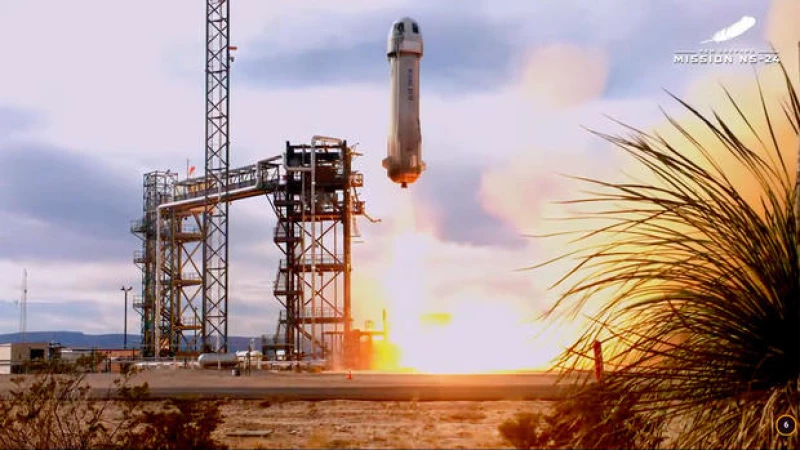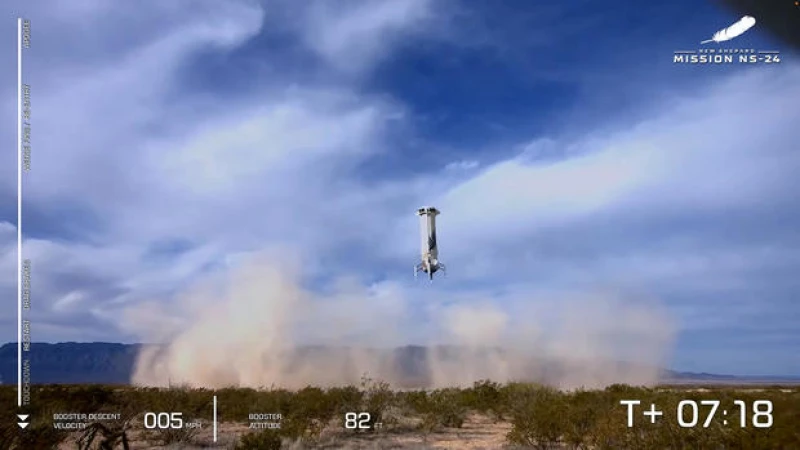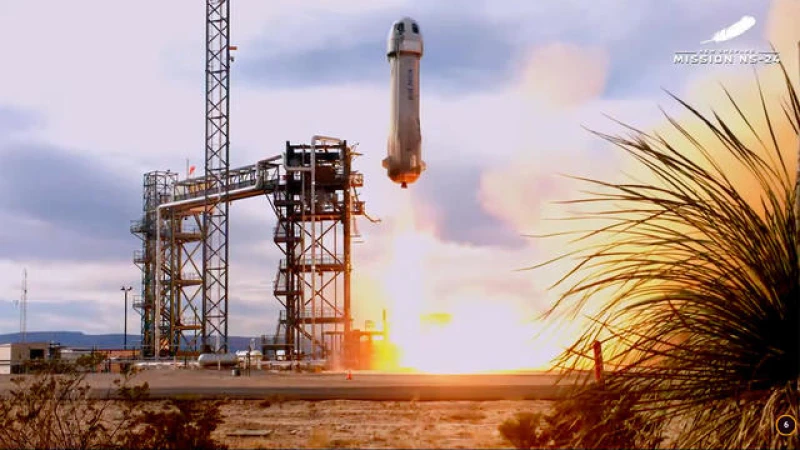Blue Origin Launches Unpiloted New Shepard Capsule
Blue Origin, the rocket company owned by Amazon-founder Jeff Bezos, successfully launched an unpiloted New Shepard capsule to the edge of space and back Tuesday, the first flight of the sub-orbital spacecraft since a booster failure last year triggered a dramatic abort.
No passengers were on board for the 2022 flight and while the booster was destroyed, the spacecraft, carrying a variety of microgravity experiments, landed safely. Engineers eventually blamed the mishap on a failure of the booster's main engine nozzle about a minute after liftoff.
The nozzle was redesigned, and Blue Origin put it to the test Tuesday at the company's West Texas launch site, firing up the booster's hydrogen-burning BE-3 engine a 11:42 a.m. EST. After throttling up to full power, the booster lifted off and accelerated skyward atop a brilliant jet of flaming exhaust.

Blue Origin did not say whether the capsule launched Tuesday was the same one that safely aborted after the September 12, 2022, mishap. But like that flight, the capsule launched Tuesday was again loaded with more than 30 microgravity experiments provided by NASA, academia and private industry.
Liftoff and powered flight appeared normal, and the BE-3 engine shut down as planned about two minutes and 20 seconds after launch. The New Shepard capsule then separated and continued coasting upward on a ballistic trajectory as the on-board experiments presumably collected data.
The capsule reached its maximum altitude — 66.5 miles — about four minutes after launch and began plunging back to Earth. The booster flew itself back to a picture-perfect rocket-powered landing about seven minutes and 15 seconds after takeoff, followed by the capsule's parachute-assisted touchdown three minutes later. Mission duration: 10 minutes and 13 seconds.
There were no apparent technical issues and pending a data review, commercial passenger flights are expected to resume in the near future.
"Demand for New Shepard flights continues to grow, and we're looking forward to increasing our flight cadence in 2024," Phil Joyce, senior vice president of New Shepard operations, said in a statement.
The New Shepard system was built to carry passengers and research equipment on up-and-down flights just above the internationally recognized "boundary" of space some 62 miles up. Passengers and experiments experience about three minutes of weightlessness before falling back into the thick lower atmosphere.

Tuesday's flight marked a significant milestone for the company, as it was their 24th successful launch of the New Shepard rocket since 2015. Over the years, they have carried a total of 32 passengers on six different missions, including notable individuals such as Jeff Bezos, his brother Mark, actor Willam Shatner, TV personality Michael Strahan, astronaut Alan Shepard's daughter Laura, 82-year-old aviator Wally Funk, and adventurer Hamish Harding.
In comparison, Richard Branson's Virgin Galactic has launched 49 individuals on 10 sub-orbital flights using their air-launched rocket-powered spaceplane. However, they are shifting their focus towards the development of a larger and more capable "Delta" spaceplane that can accommodate six paying customers, similar to the New Shepard.







